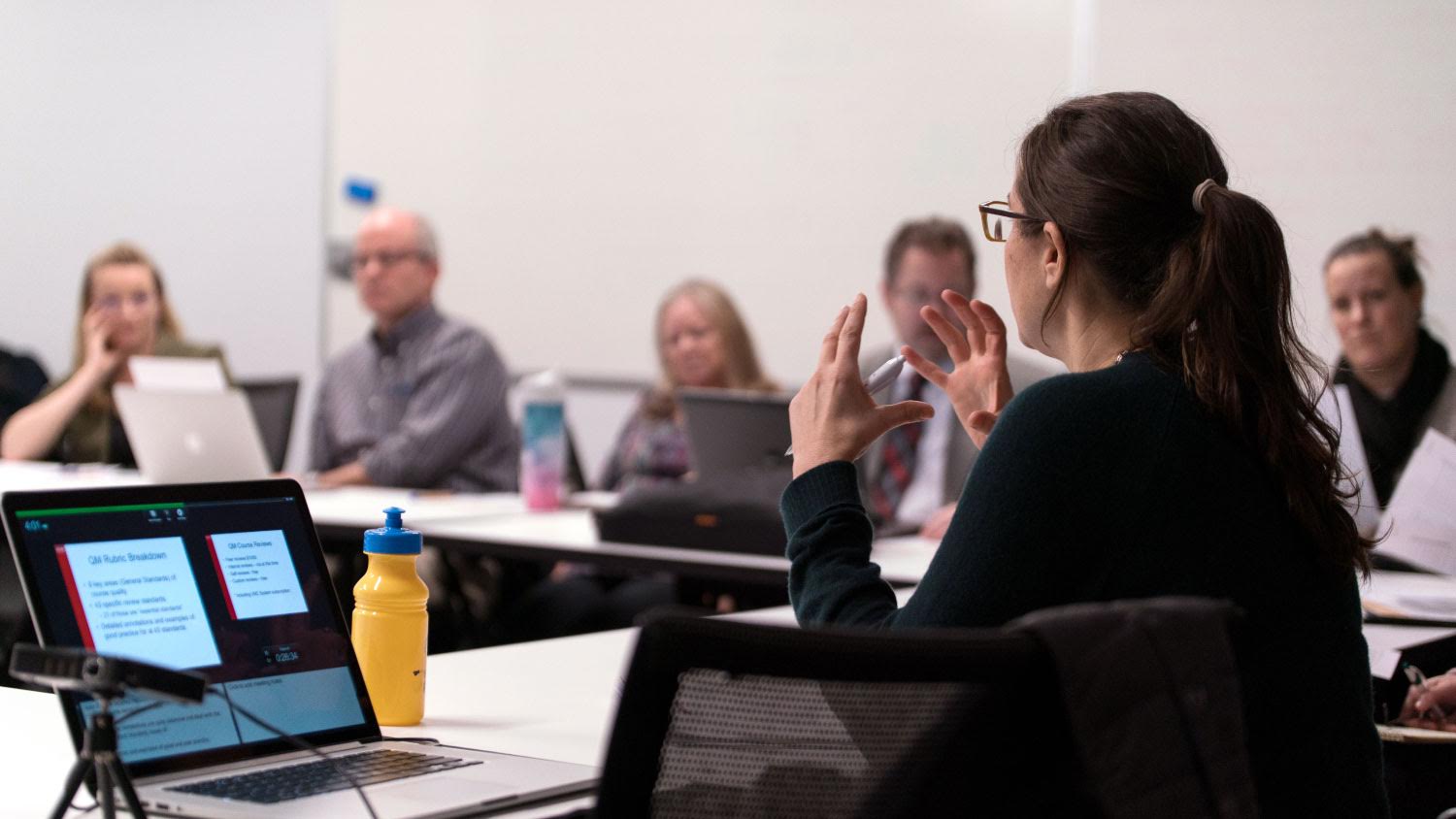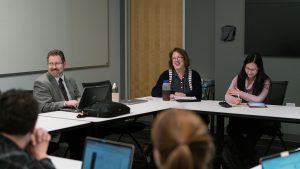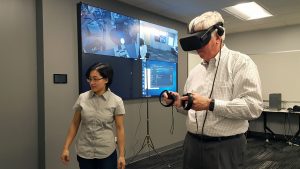Interest Groups Promote Cross-University Collaboration

DELTA supports a variety of interest groups with a focus on Mediasite, instructional design and virtual reality. These groups meet to discuss the goals and challenges of using new technology in the classroom.
Mediasite Users Group
Part of DELTA’s Mediasite-related service to the campus community is the Mediasite Users Group (MUG). There are varying levels of MUG groups. The NC State MUG is focused on campus Mediasite technical personnel and instructional designers. The Carolina Chapter Mediasite User Group has Mediasite customers from North and South Carolina that gather two to three times per year.
The NC State MUG is a way to keep our campus partners updated on support for the enterprise, changes that are coming and currently supported software versions. It’s not intended for faculty or students. The main goal is to meet face to face with campus users to provide support updates and provide an open forum for discussion.
NC State MUG collaborates with local, state and national groups of Mediasite users. The original group has grown from a handful of members to nearly 35-40 people due to the heavy use of Mediasite.

When hired as DELTA’s Media Production Services Director in 2012, Leisa Bolles assumed MUG oversight. Since her arrival, she has formalized meetings and communication channels.
“Each college sets up rooms and support structures differently. There is no single, unified set-up across campus. That means there are many scenarios and when technical issues arise, it means we have to understand the unique set-up and usage case for each partner,” said Bolles.
NC State MUG continues to evolve as Mediasite use expands on campus. While it will always provide a method for DELTA to disseminate important information to campus partners, it’s also becoming a means of building cooperative relationships and mutual understanding among university Mediasite professionals.
“Ideally, I would like to get to the point where we provide administrative updates for 15 minutes and then have our partners use the time to share best practices and lessons learned. I would like to see the meetings become more collaborative, with greater open discussion.” said Bolles.
For more information about the MUG please email mediasite-help@NCSU.edu
Instructional Design Interest Group
On the third Tuesday of every month throughout the academic year, faculty and staff who have an interest in instructional design meet for the NC State Instructional Design Interest Group (IDIG).
IDIG was created as a way to bring together faculty and staff from the area who have an interest in the different aspects of instructional design. The interest group covers the topics of layouts, best practices and useful tools for learning and assessment.
Lead Instructional Designer Bethanne Tobey highlights diversity in members as one of the IDIG’s strengths. “IDIG currently represents people from all over campus.
Members who serve on the IDIG committee are cross-departmental and come from the Office of Faculty Development and the College of Veterinary Medicine,” said Tobey. Since IDIG’s creation several years ago, Tobey has taken over as the leader of the group.
Since the beginning of IDIG, the group has seen tremendous growth in outreach. Currently, the NC State-founded interest group works with other neighboring campuses such as Meredith College, Wake Technical Community College, William Peace University and UNC-Chapel Hill. The makeup is primarily instructional designers but faculty members are always welcome to attend the meetings.

The goal of IDIG is to connect instructional designers and ensure teachers understand course design, teaching and technology implementation.
Instructional designers face many common challenges in their work such as the appropriate implementation of technology and aligning course activities with learning outcomes.
“Lining up a guest speaker on a topic that others will not only find interesting but also beneficial is a challenge,” said Tobey. The committee members meet twice a year to brainstorm IDIG topics and work to bring in the expertise in those areas.
So far this year, IDIG has had speakers from VRIG, NCSU Libraries and the Office of Information Technology (OIT).
Another important element moving forward is the topic of growth. “All are welcome, we would love to see more faculty. Anyone is always welcome, not just instructional designers,” said Tobey.
If you are interested in learning more, IDIG meets every third Tuesday from 3:30-4:30 p.m. Additional information can be found on the IDIG webpage. Contact Bethanne Tobey for any questions.
Virtual Reality Interest Group
Virtual Reality Interest Group (VRIG) at NC State was created in 2015 to establish an interdisciplinary community of interest on campus through conversations, demonstrations and sharing of ideas. VRIG is comprised of integrative perspectives, which leads to great collaboration. The interest group focuses on addressing the different needs of everyone through participation with instructional design in education and virtual reality technology.
The group assembled from David Woodberry, Mike Nutt, Bethanne Tobey and Mike Cuales, who came together based on shared interests in the research and development of the emerging applications for virtual reality in education. Today, VRIG is a collaboration by experts across campus to share how different groups are using technology. The group looks to support each other as the larger campus community.
Cuales noted DELTA’s goal for VRIG is to inform the community of the best practices for production of content and integration of virtual reality, augmented reality and content for online education.

Since its creation, VRIG has grown from four members to nearly 70 subscribers. When asked about the rapid growth and development, Cuales gives credit to the many partners who have helped host meetups or taken an interest in VRIG activities. Partners include NCSU Libraries, NC State College of Design, The Friday Institute, University Communications, Campus Enterprises and DELTA.
The biggest challenges VRIG faces are the same challenges most virtual reality users and creators face; the technology is so new and constantly evolving.
“It is exhausting trying to keep up with the pace and the rate that things are changing,” said Cuales. Group members rely on each other to share best practices and lessons learned.
Those interested in learning more about VRIG should contact Mike Cuales at mike_cuales@ncsu.edu or NCSU Libraries Fellow Peter Schreiner at prschrei@ncsu.edu.


